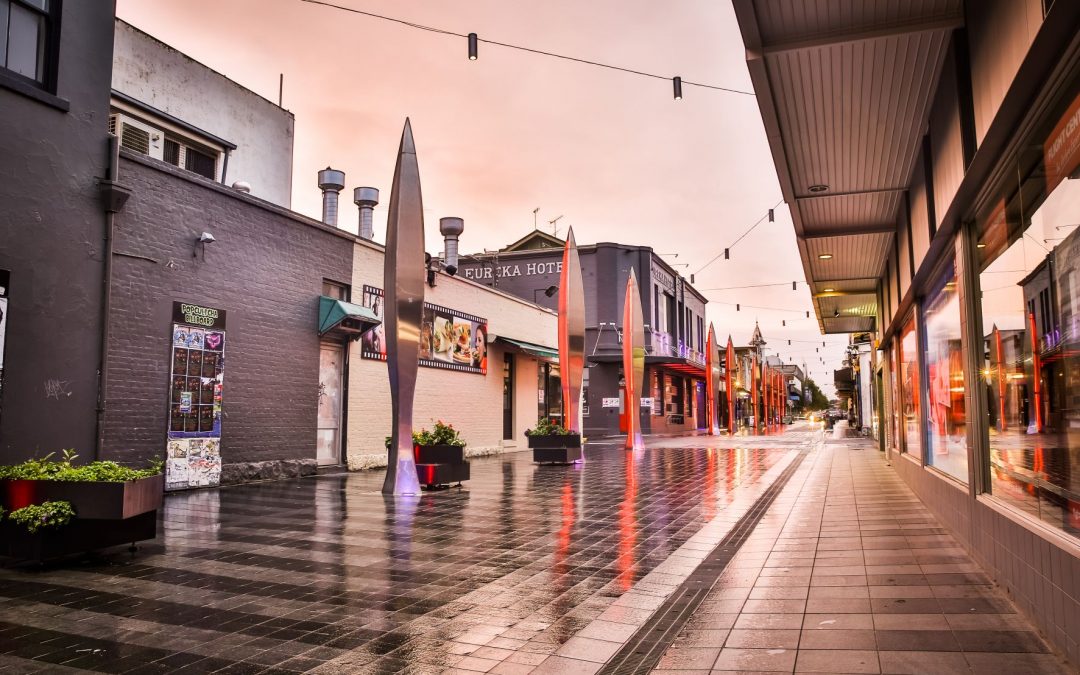Cities across the world are being re-imagined in light of the pandemic.
City-based workers were the lifeblood of our city centre’s cafes, restaurants and shops prior to the pandemic. With mandated work from home orders, both workers and businesses have seen the benefit of flexible work practices. However, we are now faced with CBD retail, hospitality and other service based business suffering losses in trade due to reduced foot traffic.
Rather than make demands for workers to return to full-time commuting to the city, we need understand what the data tells us:
1. More people are predicted to continue to work from home than prior to the pandemic. International data predicts that over twenty per cent of office workers will continue to work from home in some capacity. Prior to the pandemic, this figure was five per cent.
2. As less people commute to CBDs, office space demand is predicted to decline. While office spaces are currently reinventing floor plans to ensure that social distancing is complied with and the need for private offices brought back into focus, the demand for traditional office space will lessen.
3. Consumer spending in the CBD will decrease with some research stating the decline to be somewhere between five and ten per cent against pre-pandemic levels.
CBDs are vital parts of our community and perform value-added roles including agglomeration, entertainment, cultural experiences, and larger-scale social interaction. But now we need to re-vision our CBDs to be designed for people to live, work and play in healthy, sustainable environments. There will be a need for mixed use spaces, co-working in cafes and hubs, spaces with fresh air and room to walk outside, and more green spaces.
Further, local employers will be faced with a talent crisis if these trends are not understood as workers will select organisations who offer flexibility.
In Geelong, we are already seeing an influx of Melbourne people buying homes in our region while still being employed by Melbourne-based organisations. These people will have the best of both worlds with well-paid roles, lower housing costs, less dense living, and the flexibility to not have to commute Monday-Friday. This trend is putting pressure on our housing affordability and housing stocks. It is also putting pressure on access to skilled workers with the double-whammy of skilled migration levels in dramatic decline due to our international border closures.
As Richard Florida states: “Going forward, cities need to be intentional about how these business districts evolve: Left to their own devices, they will be remade in a way that benefits the already advantaged and deepens existing economic, social and racial divides. Instead of only providing incentives to landlords to convert fallow office towers into high-end residences, urban policymakers must ensure they’re also converted into much-needed affordable housing.” (Source: “The Death and Life of the Central Business District” Richard Florida, 14 May 2021, Bloomberg Lab.)
Re-purposing office spaces to shared spaces, co-working and potentially affordable housing and accommodation is something we need to consider. Government policy and incentives is one option, but it’s also something local property owners can plan for as we move through significant change as global community.
Central Geelong needs a steady population of at least 10,000-12,000 people and not just a reliance on the international student market.
The Committee for Geelong is eagerly awaiting the release of the Revitalising Central Geelong Action Plan refresh. Part of this plan is the Living 3220 Project which aims to have 12,000 people living in central Geelong. Urgent action from government is needed to fund, incentivise and subsidise a range of residential options for the city. This includes shop-top living, new developments and re-purposing existing commercial properties for residential living – including affordable, social and key worker housing. People living in the city will give businesses are far more stable and long term base from which build. More people living in the city will also make it safer, more vibrant and create demand for new businesses.
Media Contact: Jennifer Cromarty, CEO Committee for Geelong
M: 0413 241 033 jennifer.cromarty@committeeforgeelong.com.au
